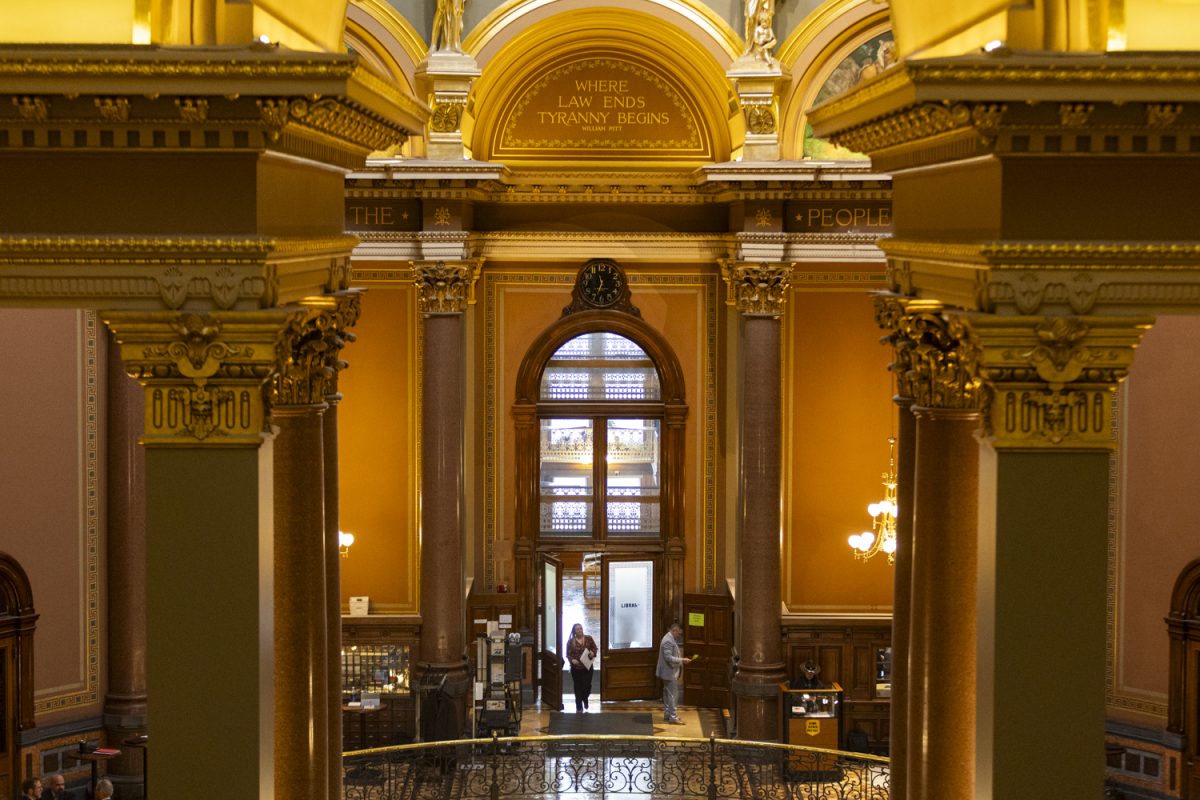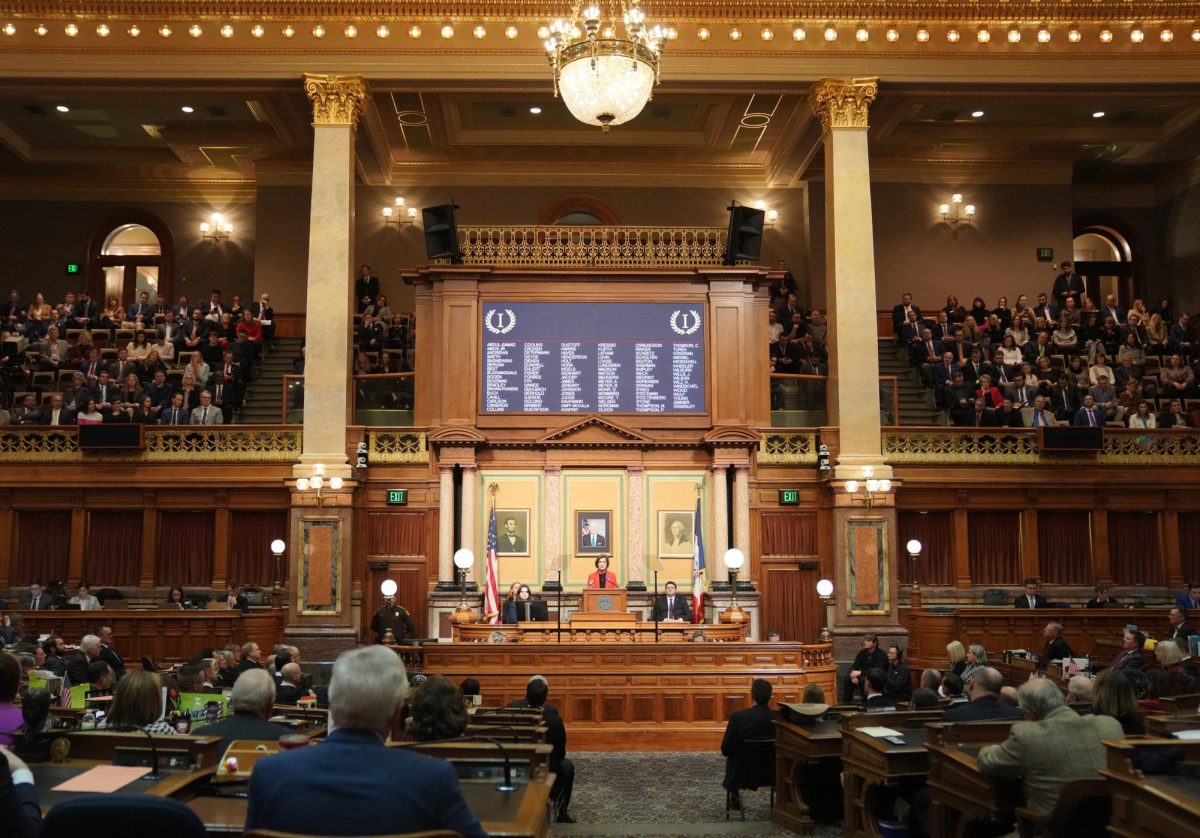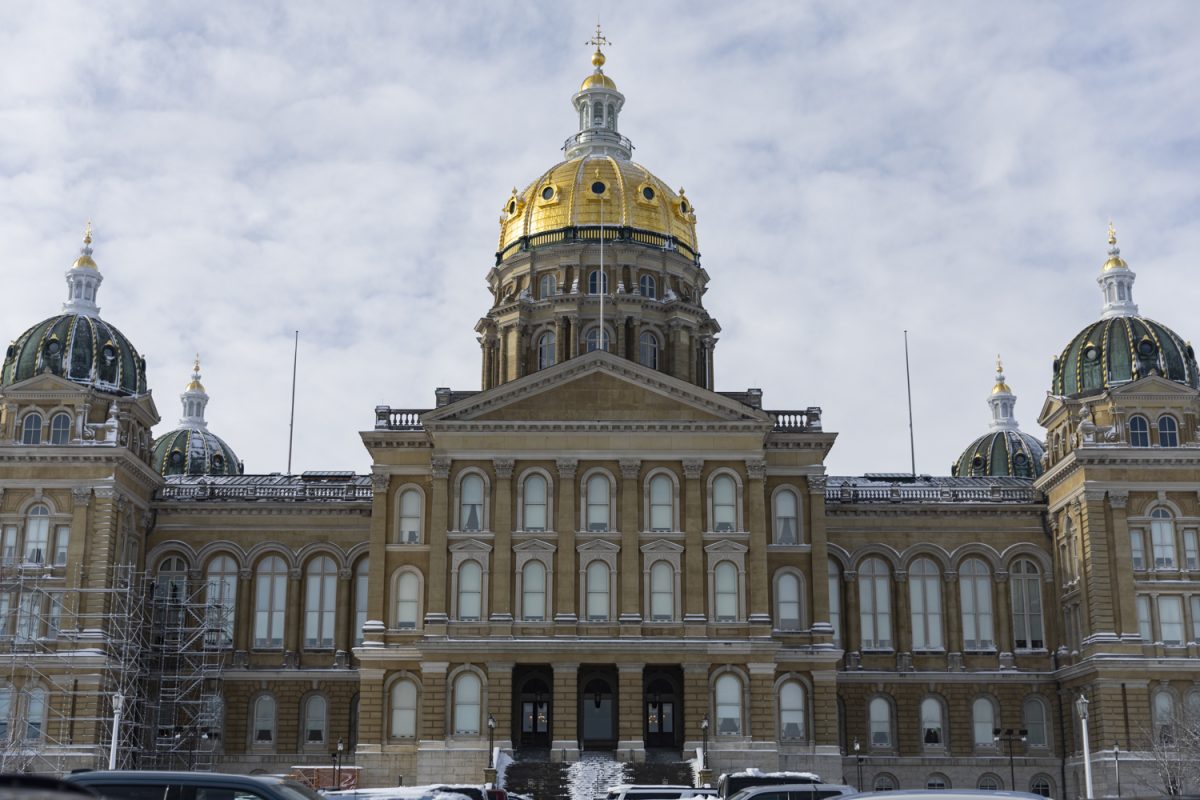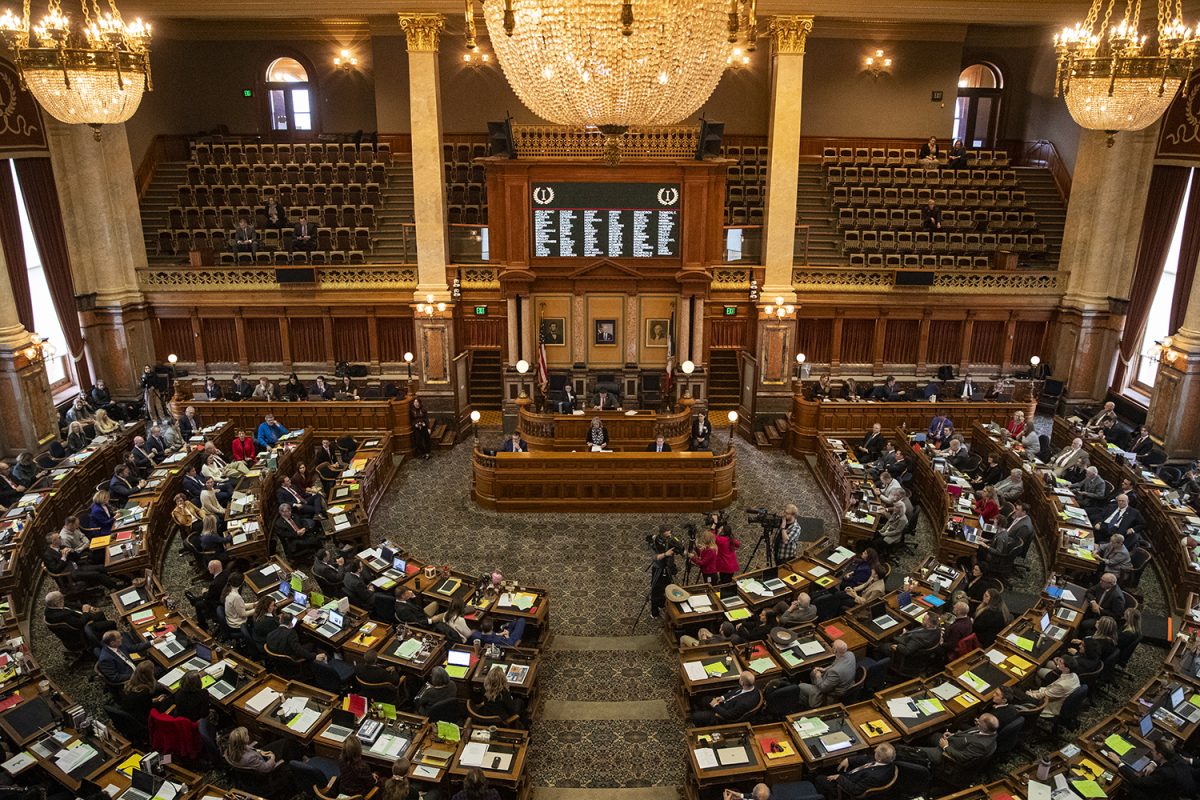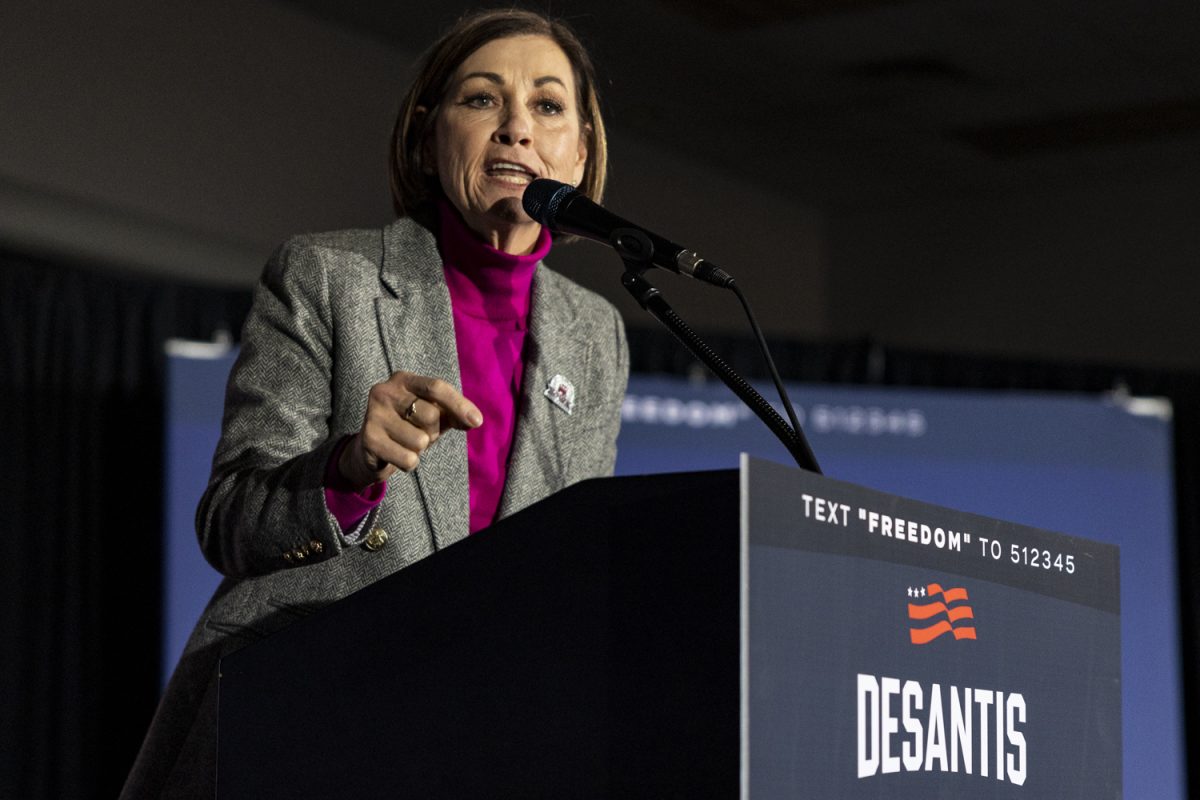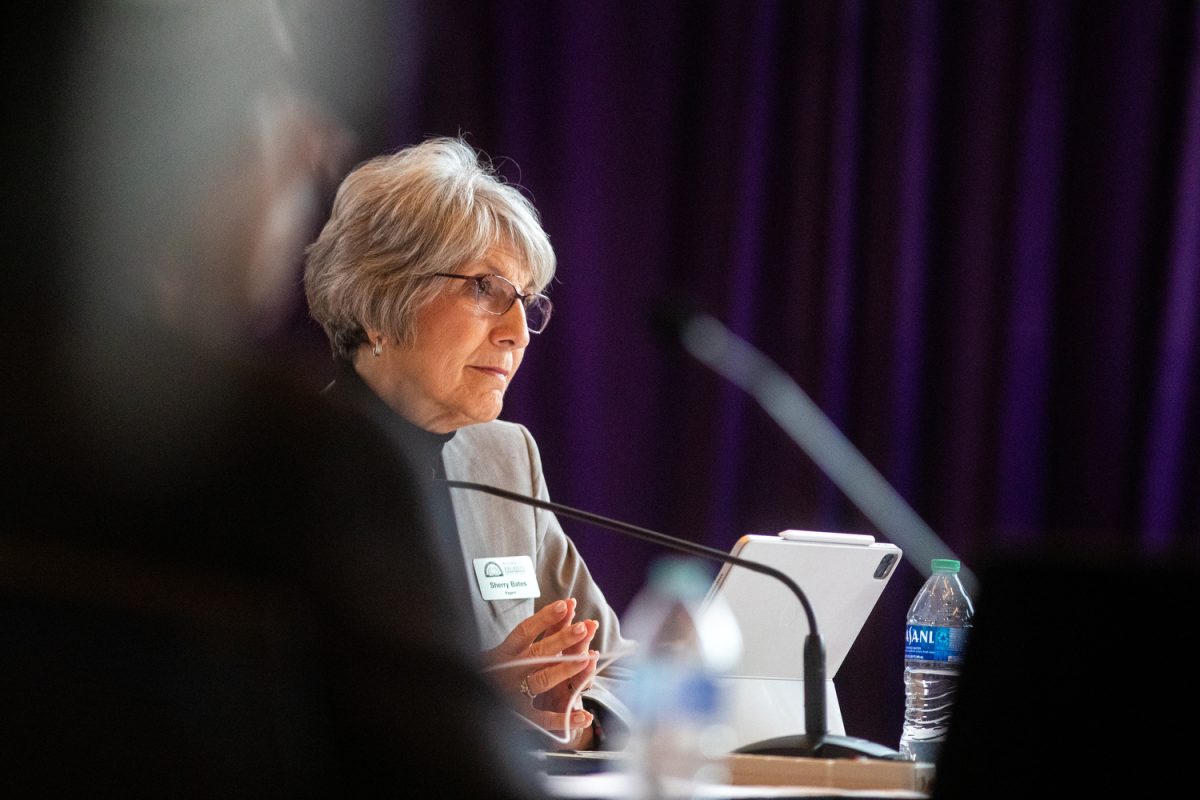Gov. Kim Reynolds has signed a bill that will change the way the Iowa Board of Utilities regulates natural-gas-expansion projects, jurisdiction over municipal utilities, and its regulatory process.
The bill, SF 2311, which was signed last week, will provide transparency so ratepayers can see how much of their money is going toward energy-efficiency efforts.
Brenna Smith, the communications director for Reynolds, provided The Daily Iowan with a statement on how the bill is expected to encompass the public interest.
“Senate File 2311 returns more than $100 million a year to ratepayers while maintaining a robust energy-efficiency program that ensures Iowa leads the nation on energy efficiency by investing an additional $620 million over the next five years in energy-efficiency innovation,” Smith wrote.
RELATED: University of Iowa faculty expands search abroad for clean energy
Smith also said the bill promotes natural-gas-line extension in rural areas that would, hopefully, encourage further economic development.
Sen. Rob Hogg, D-Cedar Rapids, said the bill is an end to bipartisan support for energy-conservation efforts.
“[Republicans] call energy efficiency a hidden tax — that’s ridiculous because I could call coal burning a hidden tax,” Hogg said. “[Republicans] picked on energy efficiency as the one thing utilities do as a hidden tax, even though it was good for all consumers because it keeps rates low.”
Hogg said that effective Jan. 1, 2019, there would be a reduction of about $100 million a year in energy efficiency. This would result in a loss of jobs for people providing those services, he said.
The reduction will be a refund to customers on a federal tax reform, according to an analysis from the Iowa House Republicans.
RELATED: Reynolds visits UI, talks renewable energy
Hogg said a possible long-term effect of the law would be that rates for consumers would go up, because utility companies would need to build more equipment.
“I’m hopeful we will be able to avoid that because we will be able to reverse this policy next year,” Hogg said.
The law takes away the prohibition for municipal utilities to discriminate against solar and wind power. In a press release, the Iowa Environmental Council said this bill will allow for monopoly utilities to build more power plants and energy rates for consumers will increase.
The press release also said the law completely contradicts Reynolds’ 2016 Iowa Energy Plan.
The plan consists of foundational pillars, two of which entail energy efficiency and energy conservation, and one that promotes workforce development. Those opposed, such as Hogg and the Iowa Environmental Council, say Reynolds is not fulfilling her own plan.
RELATED: MidAmerican Energy to invest billions in Iowa wind energy
Another foundational pillar to the plan is the expansion of natural gas in underserved areas and to use alternative-fuel vehicles. Both of these are highlighted in the bill.
Terry Davis, the Republican chairman in Des Moines, said he is mostly in favor of the law, but he sees the partisan divide.
“It [the bill] seemed to be voted on party lines,” he said. “Sometimes, if one party doesn’t get what they want, then they are totally opposed to it, even though there are a lot of good things.”









